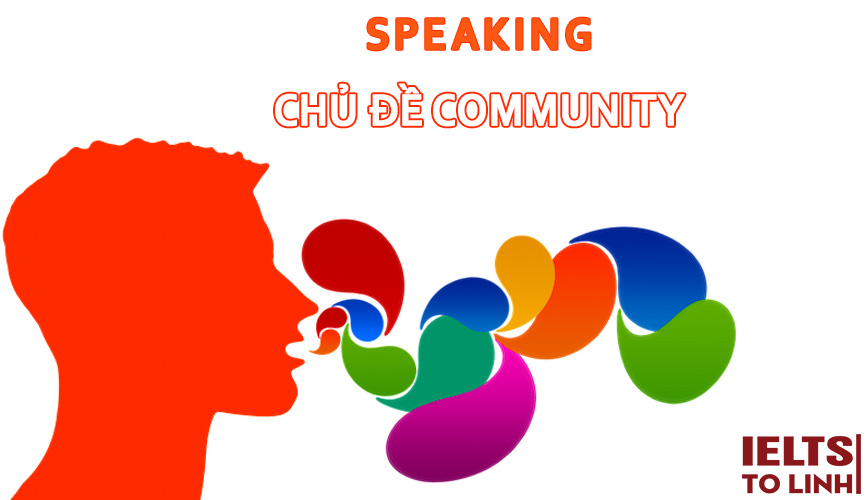Hôm nay cô trò ta cùng xem qua phần trả lời cho 3 câu hỏi về chủ đề Community ở part 3 IELTS Speaking nhé. Đây là các câu hỏi rất phổ biến cho chủ đề này và để ghi điểm cho các câu hỏi thường gặp ở Speaking part 3 bên dưới với chỉ tầm 10s suy nghĩ thật sự không phải là điều dễ. Để tự học nói IELTS đạt hiệu quả, các bạn cần tham khảo các bài mẫu càng nhiều càng tốt, vậy chúng ta cùng xem qua phần sample và phân tích bên dưới để trau dồi thêm kiến thức nha!

Đây là 3 câu hỏi có phần hơi khó nằm trong cuốn Cambridge IELTS 9 (p.103).
1) What are some of the ways people can help others in the community? Which is the most important?
I think there are many ways to help others in our local communities (Phần trả lời câu hỏi). For example, where I live, some people volunteer to run activity clubs for children, or they help out in residential homes for elderly people. Others give money, food or clothes to organisations that support people living below the poverty line. In my opinion, there isn’t a scale of importance when it comes to helping others; all forms of help are positive. (Phần giải thích, ví dụ và ý kiến riêng)
2) Why do you think some people like to help other people?
Most people get a good feeling when they help others, and they understand that we can all experience difficult times in our lives when we might need support. For example, we all grow old, and we all run the risk of losing our jobs or having a health problem that affects our ability to look after ourselves. So, I think people help others because they empathise with them.
3) Some people say that people help others in the community more now than they did in the past. Do you agree or disagree? Why?
I disagree with that kind of opinion. It’s impossible to generalise about how much people help in their communities from one generation to the next, so I don’t think we should try to judge or compare how altruistic people are now or were in the past. There have always been those who help others and those who don’t.
Về từ vựng:
- volunteer to run activity clubs: Tình nguyện tham gia các hoạt động hội
- help out (phrasal verb): giúp đỡ người khác
- residential homes for elderly people: nhà cho những người già
- support people living below the poverty line: hỗ trợ cho những người có cuộc sống dưới mức nghèo
- there isn’t a scale of importance when it comes to helping others: không có một thước đo nào để đánh giá xem việc giúp người khác dưới hình thức nào thì quan trọng hơn (mình dịch theo ý trong bài nhé)
- all forms of help are positive: tất cả sự giúp đỡ đều là đáng trân trọng.
- experience difficult times: khoảng thời gian khó khăn
- run the risk of losing our jobs: nỗi lo sợ bị mất việc
- people help others because they empathise with them: Con người giúp đỡ nhau vì họ cảm thông cho nhau
- It’s impossible to generalise about…: Không thể xác định…
- from one generation to the next: từ đời này sang đời khác
- judge or compare how altruistic people are: Đánh giá hay so sánh lòng tốt của con người.
Ở các câu trả lời mẫu trên, các bạn nhận ra câu mở đầu được dùng để trả lời trực tiếp câu hỏi không? Phần 2 được dùng để nêu ví dụ, giải thích và câu cuối cùng là để các bạn nêu lên quan điểm cá nhân như là một phần kết xác định lại ý chính câu trả lời của mình. Và đó không gì khác chính là các cấu trúc cần có nhằm ghi điểm cho Speaking IELTS part 3, hy vọng các bạn đã hiểu được cách thành văn cho answer của bản thân nha!
Chúc các bạn học tốt,
Trần Tố Linh






![[SPEAKING] 11 lỗi cần tránh trong IELTS Speaking](https://ieltstolinh.vn/wp-content/uploads/2018/04/ielts-grammar-280x190.jpg)





